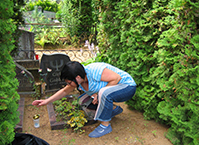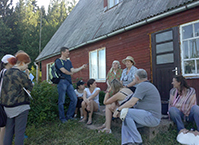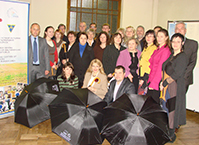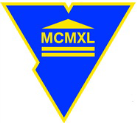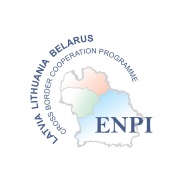E-MUSEUM “VITAMEMORIAE”: COLLECTION AND RESEARCH
Foto
To record people’s life stories, traditions, customs, rituals, rare photographs, old documents, ethnographic differences in funeral rites, etc. the researchers of Daugavpils University and Yanka Kupala Grodno State University carried out field studies in LV and BY territories: in the villages of Krāslava, Rēzekne, Daugavpils regions (Asūne, Foļvarka, Kruki, Skrudaliena, Indra, etc.) and in Belarus (Braslav and Vitebsk districts). The field studies were implemented in the framework of the project “Popularization of the Centres of Oral History in the LV – BY Cross-Border Area”, ID Nr. LLB–2–143, of the Cross Border Cooperation Programme Latvia–Lithuania–Belarus implemented within the framework of the European Neighbourhood and Partnership Instrument 2007–2013.
During the research and the expeditions, the project implementers collected, segmented, transcribed, and digitized the audio-visual materials (audio and video records, photo evidence). To make the collection of the E-Museum more complete, the field researchers and cemetery researchers of Daugavpils University and Grodno University will segment and systematize the audio-visual materials collected during oral history, cemetery research, folklore and dialectology expeditions of the previous years that until now have not been used, aiming at including the best and most valuable segments of the collection into the E-Museum.
The story tellers whose life stories make the input of the E-Museum are people of various generations, mostly elderly people. The childhood of aged people, who at present are about 80 years old, proceeded in the 1930s, therefore the segmented audio-visual units included in the E-Museum chronologically begin from 1929 and can describe only the respondents’ childhood memories. The memory of the older generation is particularly important for the anthropological and historical research – it shifts the time borders, allows for moving to the events of the past through the viewpoints of those who have experienced those times. The facts can be found in chronicles, but what the witnesses of that time can reveal give the memories colour, scent, involve one into mutual emotional experience. The witnesses of the epoch tell about the events form the viewpoint of their own experience.
To motivate the respondents to share their life stories, the project field researchers used Paul Thomson’s oral history research method – enlarged vision of social history where diverse groups of the society are brought together and share common historical experience.
The research basis is the methodology of a semi-structured interview that envisages focused (guided) reconstruction of the past events and an interviewer only helps the respondents to reconstruct the past.
The oral history collection of the E-Museum is envisaged to be used not only by specialists but also by a greatest possible range of non-specialists, therefore, departing from the academic tradition envisaging a complete script and transcript (written transcription of an audio or video record) of life stories, the project experts agreed to segment 360 most vivid, colourful, expressive, unusual, typological or extraordinary audio-visual units (photo, video and audio testimonies) – thematically complete excerpts, and to systematize them according to the thematic plan that would encompass both the historical processes of the 20th century (from the 1920s-30s) and the most essential events of an individual’s life.
ACCESSIBILITY OF THE COLLECTION
The interviews included into the collection are arranged according to the principle of historicism, anthropologism and personalia, indicating the author’s name and the interviewer’s name and surname.
-
Mikhail Kripets: Partisans
You know the Germans left this place, they left Dakudava. Then the Russian partisans came: one was standing on the right, the other one was standing on the left and they were collecting food, who …
Researcher: Natalya Ivaschenko, PhD (Historical Sciences), associated professor at Yanka Kupala State University of Grodno, Kseniya Adasik, Yanka Kupala State University of Grodno
Categories: Wartime, Mikhail Kripets
-
Mikhail Kripets: The beginning of the War
Where were you when the war began?
At home. I was at home. I was thirteen years old.
In Polish times we were called the Kryptsavs’ sons, the Bolshevicks’ sons. Me and my brother. And …
Researcher: Natalya Ivaschenko, PhD (Historical Sciences), associated professor at Yanka Kupala State University of Grodno, Kseniya Adasik, Yanka Kupala State University of Grodno
Categories: Beginning of the war, Mikhail Kripets
-
Tamara Levchuk: Gangbangs (after the War)
We had lived for long in Grodno, but my father started to work as a forester in the forestry, so we moved to Putrishki. It was the year of 1955. There was a gangbang organized in Cheschevlyany. They …
Researcher: Alexei Zagidulin, PhD (Historical Sciences), associated professor at Yanka Kupala State University of Grodno
Categories: End of the war, Residence and weekdays, Tamara Levchuk
-
Evdokiya Kolokolnikova: Memories about the war
The military commissariat probably couldn’t make provision of military people. In general, they took all the men there. Well, they made the following way: there was one military instructor, so …
Researcher: Natalya Ivaschenko, PhD (Historical Sciences), associated professor at Yanka Kupala State University of Grodno, Kseniya Adasik, Yanka Kupala State University of Grodno
Categories: Mode of life, Evdokiya Kolokolnikova
-
Evdokiya Kolokolnikova: The beginning of the War
The war found me at my brother’s place. I was studying. When the war began I was sitting at home and suddenly we heard that it was a war. And my brother, it was Sunday, my brother left and didn& …
Researcher: Natalya Ivaschenko, PhD (Historical Sciences), associated professor at Yanka Kupala State University of Grodno, Kseniya Adasik, Yanka Kupala State University of Grodno
Categories: Beginning of the war, Evdokiya Kolokolnikova
-
Evdokiya Kolokolnikova: About family
I was born in village Bolshoye Selo. There were five collective farms there. It was such a big village! My father was a Belarusian. He came from Magilyov Oblast. His mother died and their father …
Researcher: Natalya Ivaschenko, PhD (Historical Sciences), associated professor at Yanka Kupala State University of Grodno, Kseniya Adasik, Yanka Kupala State University of Grodno
Categories: Family, Evdokiya Kolokolnikova
-
Galina Ivaschenko: Childhood memories
Well, I am Ivaschenko Galina Ivanauna. I was born in nineteen twenty seven, on the sixteenth of April. In Minsk Oblast, Kruhlyany region, Shepelevichy village council. The name of our village was …
Researcher: Natalya Ivaschenko, PhD (Historical Sciences), associated professor at Yanka Kupala State University of Grodno, Kseniya Adasik, Yanka Kupala State University of Grodno
Categories: First childhood memory, Galina Ivaschenko
-
Galina Ivaschenko: Studies at School
I finished three forms of Belarusian school. I attended school, finished three forms. When I came to Moscow adjacent area, I started the forth form. I studied weakly for the first half year. What I …
Researcher: Natalya Ivaschenko, PhD (Historical Sciences), associated professor at Yanka Kupala State University of Grodno, KseniyaAdasik, Yanka Kupala State University of Grodno
Categories: School, Galina Ivaschenko
-
Mikhail Pratsukevich: Pre-war economy
Mikhail Ivanavich, how did your family live in the Polish times?
Well, we sweated, worked all the time.
Who were your parents? Did they fall into the category of the wealthy, the middle or the …
Categories: Family, Mikhail Pratsukevich
-
Vasili Dzemyanovich: Synagogues after the War
Two thirds of the population were the Jews. Look at the synagogue: a woman synagogue, a man synagogue, a woman school. All these three buildings were located in one place. Here they are. All three …
Categories: Residence and weekdays, Vasili Dzemyanovich


